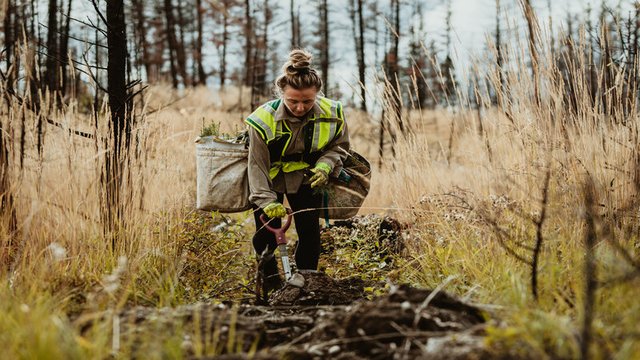
What does an environmentalist do?
March 11, 2024

In a world where climate change and environmental degradation are at the forefront of global concerns, the role of environmentalists has never been more crucial. These dedicated individuals work tirelessly to protect, preserve, and restore our planet's delicate ecosystems.
But what does an environmentalist do? In this post, we look more at the role of an environmentalist, including the diverse array of jobs they do, the requisite skills, and the educational pathways for aspiring environmentalists such as an or a Master in Sustainability at Universidad Europea.
Environmentalist meaning
At its core, an environmentalist is someone who advocates for the protection of the environment and the sustainable use of natural resources. They are passionate stewards of the Earth, working towards solutions to mitigate environmental issues such as pollution, deforestation, habitat destruction, and climate change.
Environmentalists can be found in various sectors, including government agencies, non-profit organisations, research institutions, and private companies.
Types of jobs for an environmentalist
The field of environmentalism offers a broad spectrum of career opportunities, each contributing to the greater goal of environmental conservation and sustainability. Some common roles include:
- Environmental Scientist: Conducts research and analyses data to understand environmental issues and develop solutions.
- Conservation Biologist: Works to protect and restore ecosystems and endangered species through research, habitat management, and policy advocacy.
- Environmental Engineer: Designs technologies and systems to address environmental challenges such as air and water pollution, waste management, and renewable energy.
- Environmental Educator: Teaches and raises awareness about environmental issues in schools, communities, and organisations.
- Environmental Policy Analyst: Evaluates environmental policies and regulations and advocates for effective legislation to protect natural resources and promote sustainability.
- Sustainability Consultant: Advises businesses and organisations on strategies to reduce their environmental impact and implement sustainable practices.
- Wildlife Biologist: Studies wildlife populations, behaviour, and habitats to inform conservation efforts and wildlife management practices.
Skills needed to be an environmentalist
To excel in the field of environmentalism, certain skills are essential:
- Interdisciplinary Knowledge: Environmentalists need a broad understanding of natural sciences, including biology, ecology, chemistry, and geology, as well as social sciences like economics, sociology, and policy.
- Critical Thinking: They must be able to analyse complex environmental issues, evaluate potential solutions, and anticipate the consequences of different actions.
- Communication: Effective communication skills are crucial for conveying scientific information to diverse audiences, influencing policy decisions, and mobilizing communities.
- Problem-Solving: Environmentalists need to be creative and resourceful in finding innovative solutions to environmental challenges.
- Collaboration: Many environmental issues are multifaceted and require collaboration across disciplines and sectors. Environmentalists must work well in teams and build partnerships with stakeholders.
- Adaptability: The field of environmentalism is constantly evolving, and environmentalists must be adaptable to new technologies, methodologies, and policy changes.
- Passion and Commitment: Above all, environmentalists are driven by a deep passion for nature and a commitment to protecting the environment for future generations.
What should an environmentalist study?
Aspiring environmentalists can pursue various educational paths depending on their interests and career goals. A bachelor's degree in environmental sustainability, or a degree in Biotechnology are often the first step. Graduates may then choose to pursue advanced degrees such as the master's already mentioned in this post.
At Universidad Europea, students on these programmes will gain skills and knowledge to succeed in a sector of ever-increasing importance. As well as learning the theory, due to our model based on experiential learning, students will spend time at organistions, NGO’s and other businesses, working on projects and finding solutions to real life cases.
In conclusion, environmentalists play a vital role in safeguarding our planet's health and sustainability. Whether conducting research, shaping policies, implementing conservation projects, or educating communities, their efforts are essential for creating a more sustainable future. By acquiring the necessary skills and knowledge and pursuing their passion for the environment, environmentalists can make a meaningful difference in addressing the most pressing environmental challenges of our time.